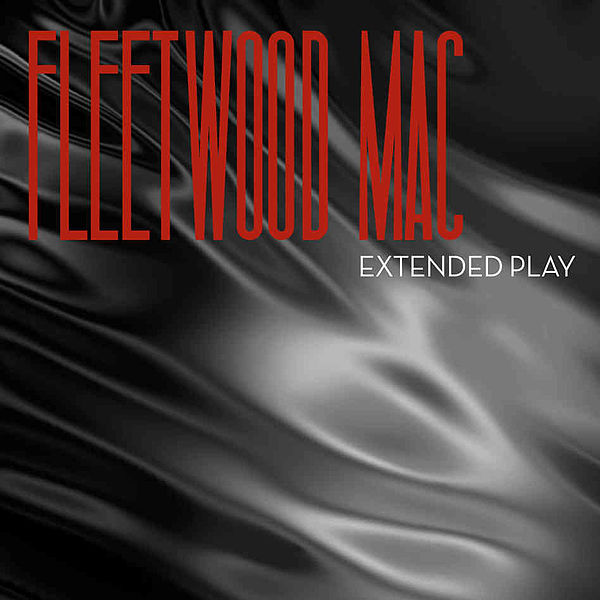Fleetwood Mac have an alluring history: one of change and adaptation to circumstance. I find them to be one of the most interesting bands around, mostly due to their wonderful song-writing skills, but also complimented by the compelling way in which the band developed over time. From the Peter Green blues-beginnings to the pop-centric magnificence of later classic records such as Rumors, under the guidance of Lindsey Buckingham, Fleetwood Mac have changed their sound and line-up consistently enough to remain engaging for decades. And, of course, with three principle songwriters on their best-known LPs (Buckingham; Nicks; McVie) there’s a lot of variety contained in albums such as Tusk and, my personal favourite, Tango in the Night.
Sadly, McVie was barely present on the band’s 2003 LP, Say You Will, and, since leaving the band, her absence is still felt on Extended Play, the first EP ever released by Fleetwood Mac. The songs on this four-track release are largely written by Buckingham, excluding “Without You,” which sees Nicks taking creative control. This isn’t an unusual system for Fleetwood Mac to follow, as some of the band’s best albums have been largely indebted to Buckingham’s writing. Single “Sad Angel” demonstrates Buckingham at his creative best, and it’s instantly recognisable as a Fleetwood Mac creation: acoustic guitars introduce the backing melody; Buckingham’s vocals are still easily identifiable, despite ageing; and the chorus has that same emotional resonance underpinning it that can be seen across the best Mac-tracks. The way in which it fades out is also appreciated – I do miss the good old musical fade-outs of the past.
“Without You” sees Nicks and Buckingham singing together, and while it is encouraging listening to these old lovers still crafting music together, it rarely ascends to the musical heights of some of their better duets. The lyrics of the song, especially, feel less creative than past efforts: a multitude of “oh yeahs” feel slightly derivative. When compared to other tracks written by Nicks such as “Seven Wonders” or “Landslide,” it doesn’t feel particularly inventive, and nothing really changes across the course of the song to justify it being the longest track on the EP.
Things remain in a musical lull with the sombre “It Takes Time,” an unexpected piano ballad from Buckingham. While undeniably pretty, it isn’t especially catchy or well-written. Nevertheless, it does allow for Buckingham to ruminate in a way that he has rarely done before with Fleetwood Mac, despite the outcome sounding like a solo effort. “It Takes Time” is inoffensive but never quite builds into anything remarkable. “Miss Fantasy” is sonically the opposite; an upbeat song more akin to what an audience might be expecting. Buckingham’s falsetto seems to struggle more than it should, but the chorus is undeniably Fleetwood Mac.
Extended Play fails to show Fleetwood Mac at their musical best. It does, however, succeed in showcasing a band who are still making serviceable music that fans will undoubtedly enjoy. While the songs here are better than a lot of what is released nowadays to the mainstream, it is impossible to avoid comparing them to previous Fleetwood Mac releases. When taken as individual songs, they aren’t up to par with the band’s past output; when taken as a whole, they create an inoffensive, musically pleasing EP. “Sad Angel” is the highlight, but the rest of the tracks here sadly feel like B-sides.

